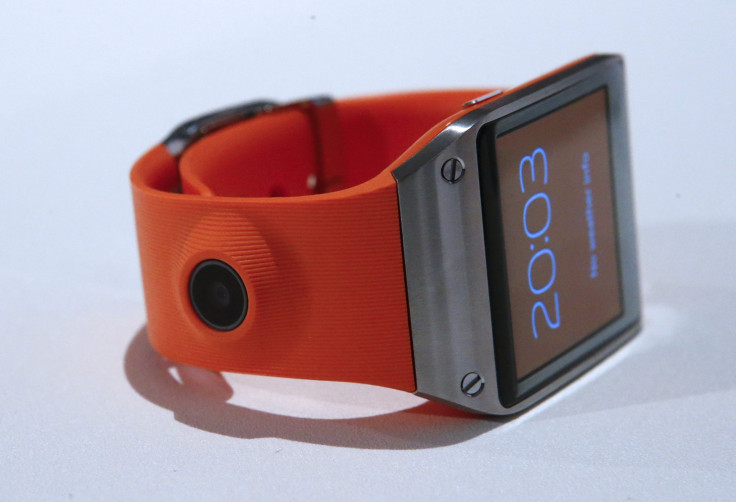Smart Watch Markets: Key Things To Know, According to Citi Analysts, After Samsung Galaxy Gear Debut

As tech enthusiasts unpack the latest features and rumors surrounding Samsung Electronics Co. Ltd.'s (KRX:005930) Galaxy Gear smart watch, unveiled on Sept. 4, the investment community has meanwhile studied the market impact of smart watches.
Here are a few items Citigroup Inc. (NYSE:C) analysts highlighted in a research note sent out on Monday, discussing the global watch market, worth $60 billion in annual sales.
1. Smart Watches and Regular Watches Will Co-Exist Peacefully
Smart watches don’t pose a threat to traditional watches, even in the long term, wrote Citi analysts. Their reasoning: Consumers already buy several different watches for different occasions, so many consumers could opt for both a smart watch and a regular watch.
The smart watch trend may also appeal to younger consumers, said the analysts. A smart watch could become their first introduction to “arm candy,” making it more likely that later in life they revert to the more traditional wristbands of their parents.
This year at least, holiday sales of regular watches are not expected to be greatly hurt by the smart watch buzz, said the analysts. Consumers are likely to adopt smart watches in the same way they’ve taken to tablets, not necessarily replacing either normal phones or watches, they wrote.
2. Watch for Minor Tech Innovations by Traditional Watchmakers
Qualcomm Inc.’s (NASDSAQ:QCOM) Toq watch, out later this fall, has a design that can be licensed by any brand. That means that watchmakers like Fossil Group Inc. (NASDAQ:FOSL) and Movado Group Inc. (NYSE:MOV) could benefit from the technology, which is Android-compatible and which Qualcomm CEO Paul Jacobs would like to see adopted by business partners.
“This could be an ideal way for traditional watchmakers like Fossil and Movado to compete in the smart watch market without investing heavily outside their core competency,” reads the note.
Fossil has already spent much on research and development related to smart watches. Movado is expected to launch touchscreen watches, which analysts expect to be successful.
The danger, however, is over-investment by traditional watchmakers into smart technology, in a field where they simply can’t compete with tech giants like Apple Inc. (NASDAQ:AAPL) and Samsung.
Analysts cited the failed Fossil Wrist PDA, discontinued in 2005 after two years on the market, after high research costs. Small screens and little memory made the watch unattractive to many.
Instead, the trick is to incorporate minor elements of smart watch technology into traditional watches, instead of spending heavily on internal research and development, said analysts.
“We believe watchmakers cannot compete with tech giants in adapting high-level computing for wristwear,” Citi analysts wrote. But they added, “Incorporating smartwatch technology while remaining steadfast in fashion focus presents competitive advantage for watchmakers with an innovative luxury product.”
3. The Dangers for Smart Watches, as the Race Heats Up
The key danger for smart watches, however, is that they won’t be widely adopted if prices stay high and there’s no “killer application,” or unique must-have feature that they establish in the world of devices.
On top of that, watches must be user-friendly, have extensive features and battery life and be good value for money, wrote the analysts.
Sony Corporation’s (TYO:6758) SmartWatch 2 and Qualcomm’s Toq releases complement Samsung’s Galaxy Gear this fall, at prices of $262, $300 and $299 respectively.
Smart watches are expected to take up only about one sixtieth of the $60 billion global watch market initially, wrote analysts. Initial smart watch sales could be around 4 million units yearly, or $800 million to $1.2 billion in revenue, they estimated. The global watch market growth has shrunk from 11 percent growth in 2011 to 7 to 9 percent for 2013.
Smart watches are also not expected to become substitutes for luxury watches, said the analysts. The Swiss Swatch Group Ltd. (VTX:UHR) is keeping a watchful eye on smart watch developments, and need not worry for now, they wrote.
© Copyright IBTimes 2024. All rights reserved.












